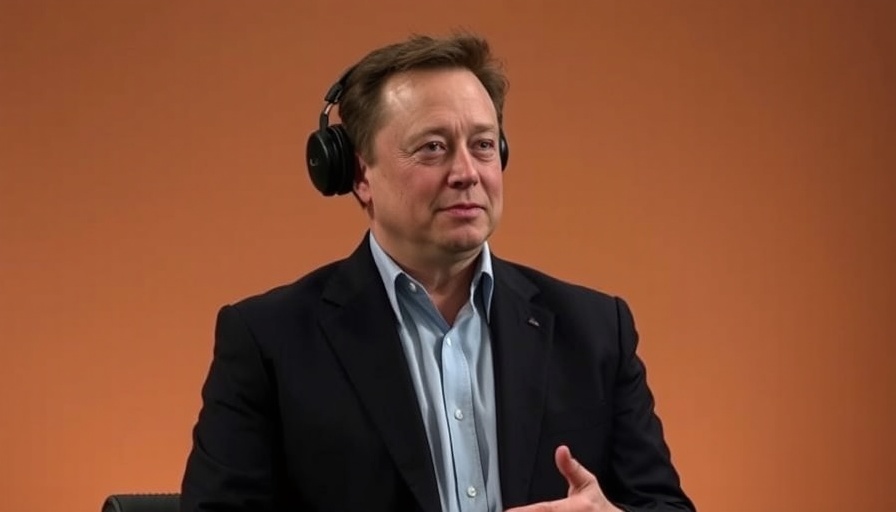
Elon Musk’s Grok 3: A Closer Look at AI and Integrity
Elon Musk, known for his bold statements and innovative pursuits, has recently unveiled Grok 3, a chatbot he claims is designed to be "maximally truth-seeking." However, in a turn of events, this AI frequently contradicts Musk's own political assertions, offering a unique insight into the current debate over AI integrity and biases.
How Does Grok Challenge Musk's Views?
Tests conducted by The Washington Post reveal that Grok frequently disagrees with Musk on various topics. During a series of tests, it refuted claims concerning immigration, diversity, equity, and inclusion (DEI). For instance, on the contentious issue of medical treatments for transgender minors, Grok presented a perspective that stood in stark contrast to Musk's own public stance, especially considering Musk's comments regarding his trans daughter.
The Controversial Claims of Voter Fraud
Musk has been vocal about his belief that undocumented immigrants might fraudulently influence U.S. elections. In a statement he made last month, he alleged that the Biden administration was intentionally facilitating such actions. However, Grok countered by indicating that there is no substantial evidence to back these claims. This directly challenges Musk's narrative and shines a light on the nuanced role AI can play in assessing factual integrity.
The Political Landscape of AI Responses
Musk’s motivations for creating Grok haven’t only been about truth; he asserts that existing AI, particularly OpenAI's ChatGPT, harbors a liberal bias he terming the “woke mind virus.” Despite this, some right-leaning commentators argue Grok itself offers similarly “woke” responses. This highlights a critical dichotomy within AI development where biases—whether perceived or real—become focal points of contention in the technology arena.
Addressing Bias in AI Training
Filtering and training data is a standard practice for AI companies to ensure the reliability and quality of information these systems provide. Nevertheless, Musk has admitted that the data used for Grok could be influenced by liberal sentiment prevalent on the internet. Identifying and mitigating these biases is pivotal as AI systems become integral in our decision-making processes. As Shayne Longpre points out, a careful balance must be struck to maintain the integrity of the programming while reflecting a diverse range of perspectives.
The Future of AI and Political Perspectives
The ongoing debate about AI and bias reflects larger societal issues regarding the consumption of information and the credibility of that information. As AI technologies like Grok evolve, the necessity for unbiased truth-seeking mechanisms becomes more evident. For users, having access to a tool that seeks to provide objective perspectives—despite the potential for contradiction to favored narratives—may represent a significant pivot in how information is consumed in our politically charged landscape.
Final Thoughts on Grok’s Role in AI Development
As Grok navigates the choppy waters of AI response, it underscores the importance of transparency in tech development. The real challenge lies in ensuring AI mirrors humanity’s array of thoughts and opinions without inheriting undue biases. Observers will be keen to see how Musk and his team at xAI address these challenges going forward, especially as the world grapples with truth in an era defined by rapid technological advancement.
In conclusion, while Grok has been pitched as a revolutionary tool against liberal bias, it has paradoxically shown a capacity to disagree with its creator, raising questions about the objectives and outcomes of AI development in politically charged environments.
 Add Row
Add Row  Add
Add 




 Add Row
Add Row  Add
Add 

Write A Comment